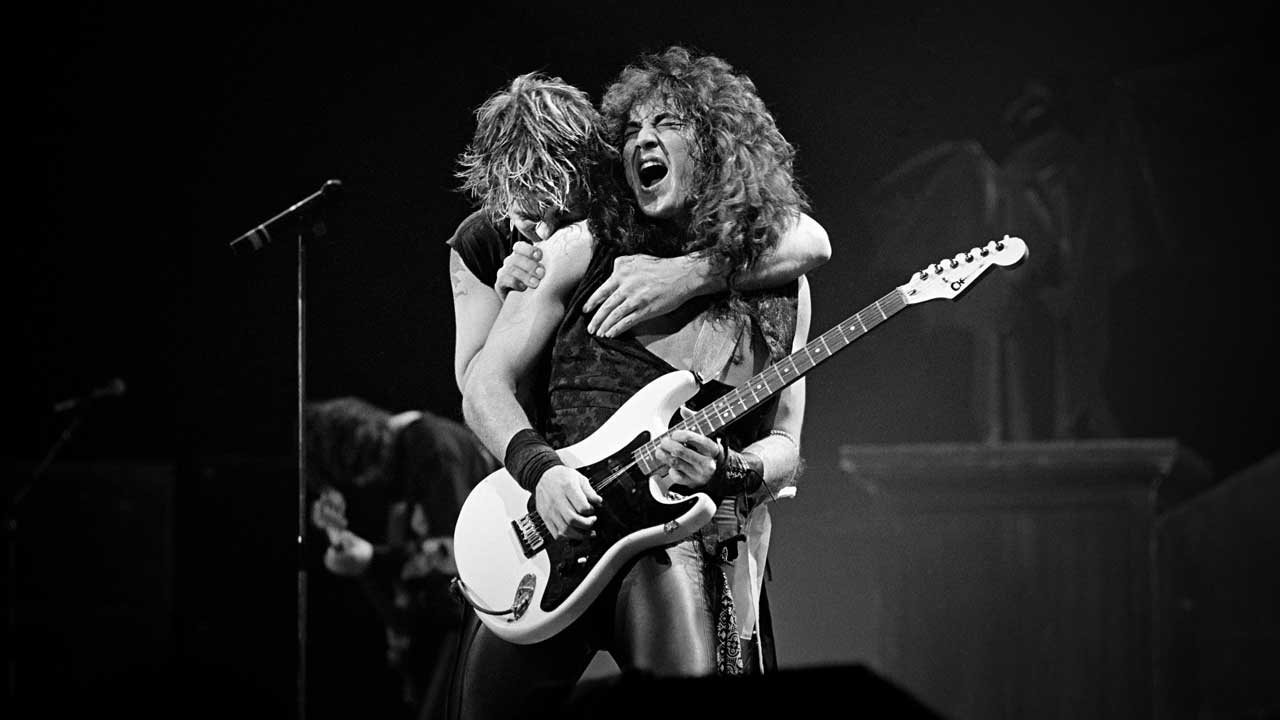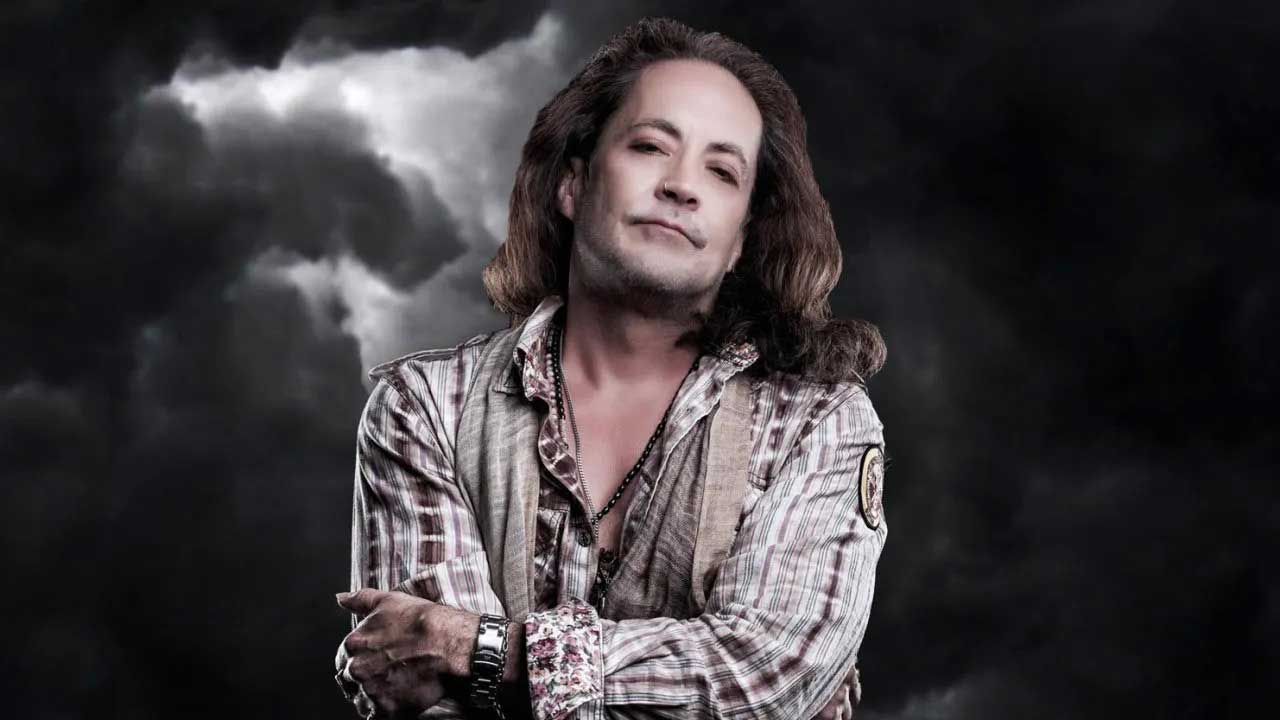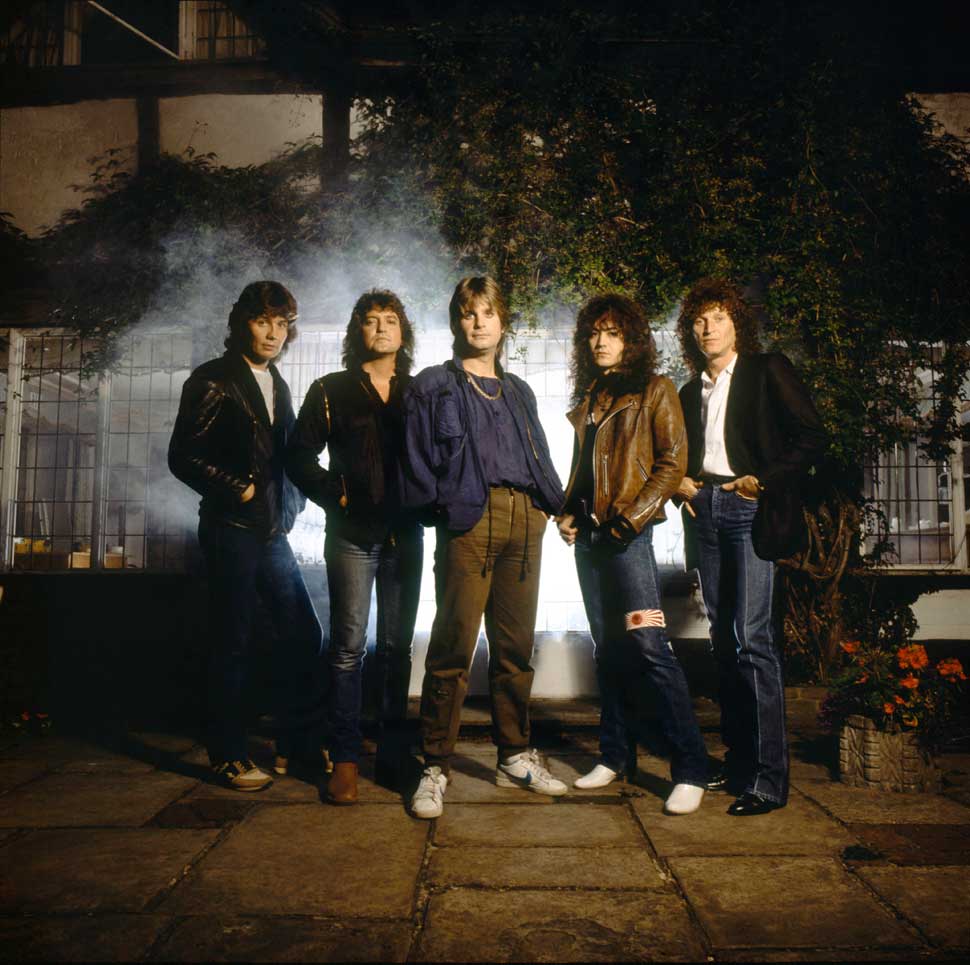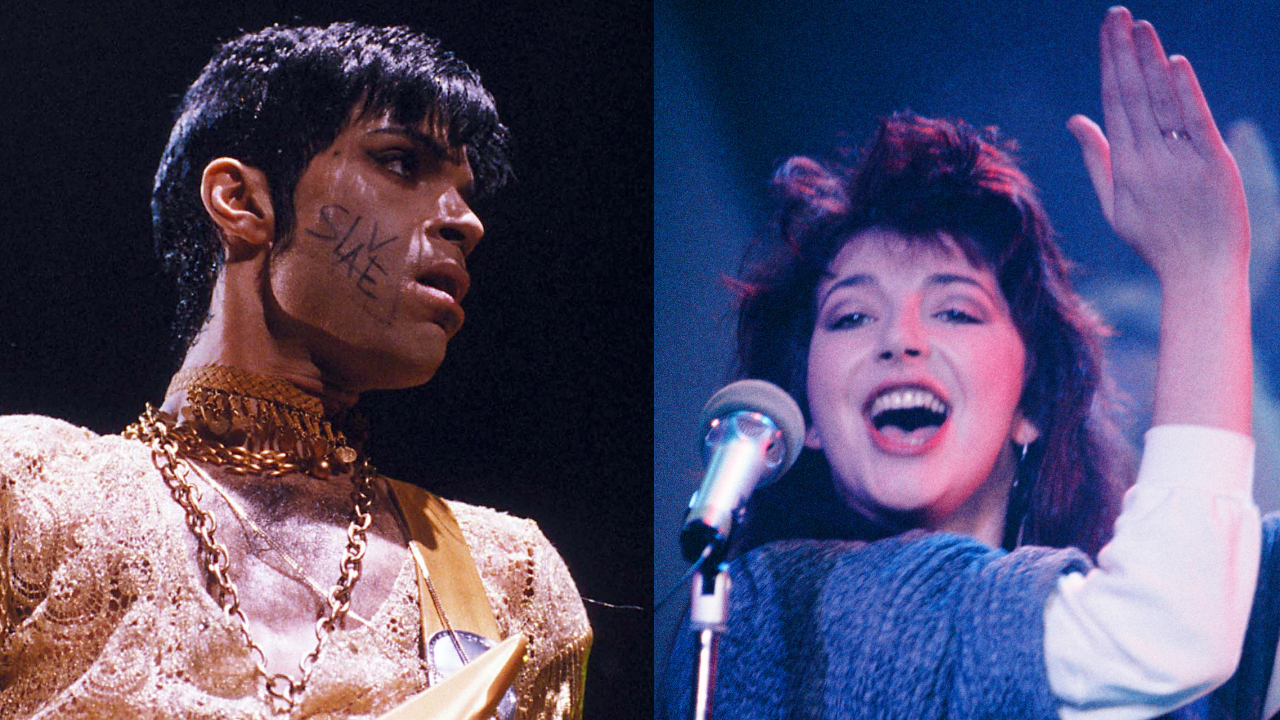“I'm old. I'm glad that what could possibly be my last hurrah is something that people – some people, at least – have noticed”: The rise and fall of the forgotten guitar hero, Jake E Lee
After his glory days as Ozzy Osbourne's right-hand man in the 80s and personal tragedy in the 90s, Jake E Lee vanished for 15 years: In 2013, he stepped back into the spotlight

Select the newsletters you’d like to receive. Then, add your email to sign up.
You are now subscribed
Your newsletter sign-up was successful
Want to add more newsletters?

Every Friday
Louder
Louder’s weekly newsletter is jam-packed with the team’s personal highlights from the last seven days, including features, breaking news, reviews and tons of juicy exclusives from the world of alternative music.

Every Friday
Classic Rock
The Classic Rock newsletter is an essential read for the discerning rock fan. Every week we bring you the news, reviews and the very best features and interviews from our extensive archive. Written by rock fans for rock fans.

Every Friday
Metal Hammer
For the last four decades Metal Hammer has been the world’s greatest metal magazine. Created by metalheads for metalheads, ‘Hammer takes you behind the scenes, closer to the action, and nearer to the bands that you love the most.

Every Friday
Prog
The Prog newsletter brings you the very best of Prog Magazine and our website, every Friday. We'll deliver you the very latest news from the Prog universe, informative features and archive material from Prog’s impressive vault.
After hitting the highs with Ozzy Osbourne as the replacement for the ill-fated Randy Rhoads, guitarist Jake E Lee disappeared after his post-Ozzy band Badlands were dropped by their record company. After 15 years in the wilderness, he returned with a new band, Red Dragon Cartel, in 2013, when he spoke with Classic Rock about his career and ambitions.
Jake E Lee never thought he’d be doing this again – playing in a rock band. He’s been out of the game for a long time. When he worked with Ozzy Osbourne in the 80s, Lee was one of the most famous guitarists in the world. But for the past 20 years he has rarely appeared in public. In his absence there have been rumours – that he was an alcoholic, that he was homeless. In reality, he has been through much worse than that: the deaths of his parents, of his first wife, and of the singer Ray Gillen, whom Lee considered his“musical brother”. But now, at the age of 57, Jake E Lee is making a comeback.
Touring with his new group Red Dragon Cartel is very different from what he experienced at the height of his fame. In 1986 Lee performed in front of an audience of 60,000 when Ozzy headlined the Monsters Of Rock festival at Donington Park. Now, 28 years later, Red Dragon Cartel are playing to a few hundred people each night on their US tour.
There are no five-star hotels for Lee these days. When he speaks to Classic Rock from Mount Laurel, New Jersey, ahead of a club show in Philadelphia, he’s in a room at a budget motel. In every respect, life on the road is harder now. But after all the time away he’s happy just to be out there playing again.
“I’m old,” Lee says. “I’m glad that what could possibly be my last hurrah is something that people – some people, at least – have noticed. It makes me feel like I’ve made the right decision to go ahead and do this.”
When Jake E Lee tells his story – the rise, the fall and the lost years – it’s with disarming candour. “I’m an honest motherfucker,” he says at the outset, in a lazy drawl. There is a quiet confidence about him. Certainly he isn’t shy about his abilities as a musician. Equally, he admits to his failures – his arrogance as a younger man, his ruthless ambition, and his occasional lapses into reckless drinking. And while there’s a hard-earned wisdom in what Lee says, there’s no bitterness or self-pity.
He had been less than a year old when his family moved to California from Norfolk, Virginia, the place where he was born Jakey Lou Williams on February 15, 1957. His father, Kenneth Williams, was in the US Navy and serving in Japan when he met his wife, Shizu. As a child of mixed race, Jake had a hard time at school. “I got called a slant-eyed, yellow-skinned Jap, and during the Vietnam era that changed to slant-eyed gook.”
Sign up below to get the latest from Classic Rock, plus exclusive special offers, direct to your inbox!
Despite this, his childhood was, he says, “reasonably happy”. A precocious talent, Lee began taking piano lessons at the age of five, before swapping to guitar after hearing Jimi Hendrix. By 18 he was fronting a local covers band, Teaser. “I was considered pretty much the best guitar player in San Diego,” he says. “I knew it, and I sure had a lot of people tell me that.”

In his early 20s he left his home town for Los Angeles. There he promptly hooked up with another émigré from the San Diego scene, singer Stephen Pearcy, who was putting together a new version of his former band Mickey Ratt (the name would soon be truncated to Ratt).
Lee’s time in Ratt was short. Pearcy wanted Lee to dress more in tune with the glam aesthetic of the Sunset Strip scene, in keeping with the singer’s vision for Ratt as ‘fashion rock’. “I told them that was the lamest-sounding motto I’d ever heard,” says Lee. To which he added: “Fuck you, I’m out.”
After being courted by Mötley Crüe (Lee claims that Nikki Sixx and Tommy Lee wanted him as either a replacement for guitarist Mick Mars or to make them a two-guitar band), Lee instead joined another LA band, Rough Cutt – principally to get close to that band’s manager, Wendy Dio, and her singer husband Ronnie, who had recently left Black Sabbath.
It was a smart play that worked, if only briefly. In the summer of 1982 Lee left Rough Cutt to join a formative version of Ronnie’s new band, Dio. But after a month of rehearsals – with Ronnie singing and playing bass, and fellow Sabbath veteran Vinny Appice on drums – Lee was fired and replaced by 19-year-old Irishman Vivian Campbell. “I think Ronnie wanted a more straightforward, British-sounding guitar player,” he reasons. “I’m not that.”
Today he’s philosophical about it, but at the time he was devastated, and sought to numb the pain by drinking himself senseless. For three months solid he got wasted every night. “I’d wake up and not know where I was and what I’d done the night before,” he says.
Ironically, what pulled him out of this boozefuelled chaos was a job with the most famous alcoholic in rock’n’roll. In late ’82 Ozzy Osbourne was looking for a permanent replacement for Randy Rhoads, the guitarist who had died in a plane crash earlier that year. Lee had sent a tape and a photo to Ozzy’s wife and manager, Sharon. He then heard on the LA grapevine that George Lynch, the guitarist for Dokken, had joined Ozzy on tour to rehearse during soundchecks. “George had got the gig,” Lee says. “Everybody knew it.”
However, when Ozzy’s tour reached LA, an audition for Lee was held at a rehearsal studio. As soon as it was done, Ozzy offered him the gig. Lee, incredulous, said yes. A minute later, Lynch breezed into the room, oblivious to what had just gone down. According to Lee, Ozzy simply turned to Lynch and said flatly: “It’s gone. You’ve lost it.” Pointing to Lee, he announced: “He’s the new guitar player.” And with that he walked away. “I did feel bad,” Lee admits, “but not as bad as I felt good. And at least I had an early experience of how Ozzy fires people.”

At 25, Lee had made it to the top. “It was surreal,” he says, “being thrown into the big league so suddenly.” He did not become rich overnight. But this was his first tour of any kind. He was playing alongside a rock legend. The audiences were huge. He got to see Europe and the UK. “It was all amazing,” he says.
Lee was cocky enough that he never felt intimidated by being the replacement for Randy Rhoads. “I never let it bother me,” he says. “It was what it was. I realised that those were big shoes to fill. Randy was the best guitar player since Eddie Van Halen. But I was a good player. I just became a better player because I had to follow Randy.”
What did intimidate him was the level of craziness at which Ozzy operated on a daily basis. “It sobered me up. When I saw what I could become I pretty much quit drinking.”
Lee spent the best part of five years with Ozzy. He featured on two multi-platinum albums, Bark At The Moon in 1984 and The Ultimate Sin in 1986. He loved working with Ozzy, for all the madness it entailed, and he bonded well with Sharon. But in the end that counted for nothing.
One day in 1987, Lee had dinner with Sharon in LA. They sat in the restaurant for hours, talking about all sorts of things. It was only after he returned to his apartment that matters took a strange turn. Lee’s roommate, who also worked as his guitar tech, arrived looking worried. He’d been drinking at the Rainbow, the famous LA rockstar hangout, and the place was buzzing with the news that Jake had been fired by Ozzy that night. “That’s ridiculous,” Jake said. “I just had dinner with Sharon and she never said anything like that.” He called her immediately. She confirmed the rumour: he was out.
Like George Lynch before him, Lee hadn’t seen it coming. To this day he doesn’t know why he was fired. He hasn’t spoken to Ozzy or Sharon since, though there’s no animosity or insults directed towards them. He accepts what happened as normal music industry practice. Instead, it’s when he reflects upon other events from that time – issues in his personal life – that his emotions come through and he struggles for words.
When he lost his job with Ozzy, he didn’t go off the rails as he’d done when Dio sacked him. The reason for this is explained after a lengthy pause. Weighing his words carefully, Lee says quietly: “I had a wife who… had problems. She was a drug addict. I spent a lot of time trying to help her get rehabilitated before we separated.”
Lee didn’t work for a year. “I had a decent amount of money. I was paid well by Ozzy,” he says. It was when the money started running out that he relaunched his career with a new band, Badlands. By a strange coincidence, it found Lee teaming up with another former Black Sabbath singer – New Yorker Ray Gillen, who fronted the Birmingham band between 1986 and 1987 – as well as another ex-Sabbath member, drummer Eric Singer. But Lee was the marquee name.
“I was the leader,” he says. “From the beginning I said: ‘We’ll vote on everything, and if the majority goes against what I want I’ll think about it.’ So it was not a democracy.”
The first Badlands album, released in 1989, showed a different side to Lee’s playing – less heavy metal, more blues-based hard rock. It sold strongly in the US, shifting 400,000 copies. And it might have sold more, had the band not been forced to cut short a US tour after Ray Gillen was hospitalised with pneumonia. At the time, Lee was not overly concerned for the singer’s health. “Ray was a young guy,” he says. “I figured he’d be okay.”
During the making of the second Badlands album, Voodoo Highway, the relationship between Lee and Gillen foundered. “Ray wanted the band to be bigger,” Lee says. “More radio-friendly. And I wasn’t interested in making music for anyone but myself. That’s a greedy, selfish thing, but for me that’s the only way to make music. So that’s when things started to disintegrate between Ray and I.”
Today, Lee thinks he has a clearer understanding of what guided Gillen in this period: the singer had been diagnosed with Aids. “Ray never said he had Aids,” he reflects, “but I figure that’s when it became apparent. And that’s when he started pushing to write songs that would take us up another level in popularity. Maybe it’s because he knew he probably didn’t have that much time left and he wanted to make a big mark. I’m not saying any of that as fact, I’m just theorising.”
Lee fired Gillen in 1992 after Voodoo Highway flopped and Badlands lost their deal with Atlantic Records. It was only when Lee attempted a reconciliation a year later that he was made aware of Gillen’s diagnosis.
“He was like my brother – my musical brother, if nothing else,” Lee says. “So I called up his mother in New Jersey, and she told me he was in a hospital. It was bad. He couldn’t talk. But his cousin was in the room, and through her I said everything I had to say – that I missed him, and that I hoped we could work together again. She said it made Ray very happy that I said that. But… he never got better.”
Ray Gillen died at home in New Jersey on December 1, 1993. He was 33. “That last contact I had with him,” Lee says, “I’m just glad we had that.”
What followed for Jake E Lee was a slow fade into obscurity. There was an instrumental solo album, A Fine Pink Mist, released in 1996. After that, for a decade he was heard only on a few contributions to tribute albums, and a covers album, Retraced, released in 2005. He was no longer thinking in terms of a career. “After grunge happened, I just feltlike I was unwanted. So I thought I’d just bow out as gracefully as I could.”
As the years passed he fell into what he calls “a kind of lackadaisical life”. There was no pressing need to work. He had a modest income from royalties, principally from The Ultimate Sin. This he supplemented by selling his guitars and other equipment. “I downsized my lifestyle,” he says with a laugh. “I rented a one-room apartment, and then I lived with friends. I heard stories that I was homeless. Well, I didn’t own a home, but I was never homeless. I made do. And I heard rumours about my drinking, too. Sure, I like to drink. But I’ve never had an addictive personality.”
Lee denies that he ever suffered from depression, even though he experienced painful losses before and after the death of Ray Gillen. “My ex-wife had overdosed and died,” he says. “Then Ray died. And years later both my parents passed away…” There’s another long pause before he says in a resigned tone: “That’s just the way things go. I wasn’t mad about it or anything. I wasn’t depressed. I wasn’t happy but I wasn’t unhappy. I don’t know if that makes sense.”
The bottom line, he says, is that his self-esteem was never dependent upon being a famous rock star. “I didn’t feel the need to be in front of an audience. I don’t need the adulation. I was happy with what I had done. But I guess I wasn’t sure of how I was going to live out the rest of my life. Maybe I was a little lost.”
His reluctance to make a comeback was informed by memories of his days in the mid-80s, when he was Ozzy’s sidekick and a high roller on the Sunset Strip scene. “I’d be in the Rainbow with the guys from Mötley Crüe and Ratt,” he remembers. “We were in our early twenties, and we’d see these guys in there who were in their thirties, local musicians who weren’t big but they were still hanging around, still trying to do it, and all of us would just snigger at them. ‘If you haven’t done it by now, you’re never gonna do it!’ And I never wanted to be that guy who was past his prime and still trying to pretend he was significant.”
What changed his mind was the encouragement of two people: Ronnie Mancuso, a veteran bassist from LA, and Kevin Churko, a Canadian producer who has worked with Ozzy, Slash and Shania Twain. In 2011, Mancuso’s band Beggars & Thieves recorded the album We Are The Brokenhearted, which was mixed by Churko. Lee played a solo on the track We Come Undone, and in the accompanying video his appearance was flagged with the tonguein-cheek message: “Jake E Lee is alive and well, living in Las Vegas. He would just rather play with Beggars & Thieves than deal with shady promoters and play Bark At The Moon 750 more times.”
Lee and Mancuso subsequently formed Red Dragon Cartel with English-born singer Darren James Smith. Their self-titled debut album is the first new and original rock record the guitarist has released since Voodoo Highway.
Lee is realistic – even self-deprecating – about his comeback. “I was out of the business for so long, so doing something now, I don’t feel like, ‘Hey, I’m still significant!’ Because I already proved that I wasn’t by not doing anything. This isn’t a desperate attempt to be someone again, it’s just an honest representation of what I’m capable of doing.”
He never felt that his life was empty without music. He has been in a relationship with his girlfriend Amy for five years, and he has a 10-yearold granddaughter whom he dotes on. But after so long getting back to music, he feels that he is making up for lost time.
“I feel productive,” he says. “Whereas maybe all that time when I was taking time off, I didn’t feel like I was contributing to the world at all. I’m in a good place in my life right now. And yeah, I’m still trying.”
Red Dragon Cartel released a second album, Patina, in 2018. According to bass player Anthony Esposito, who joined the band in 2015, Jake E Lee is currently suffering from carpel tunnel syndrome and awaiting surgery. This feature originally appeared in Classic Rock 198, published in July 2014.

Freelance writer for Classic Rock since 2005, Paul Elliott has worked for leading music titles since 1985, including Sounds, Kerrang!, MOJO and Q. He is the author of several books including the first biography of Guns N’ Roses and the autobiography of bodyguard-to-the-stars Danny Francis. He has written liner notes for classic album reissues by artists such as Def Leppard, Thin Lizzy and Kiss, and currently works as content editor for Total Guitar. He lives in Bath - of which David Coverdale recently said: “How very Roman of you!”

